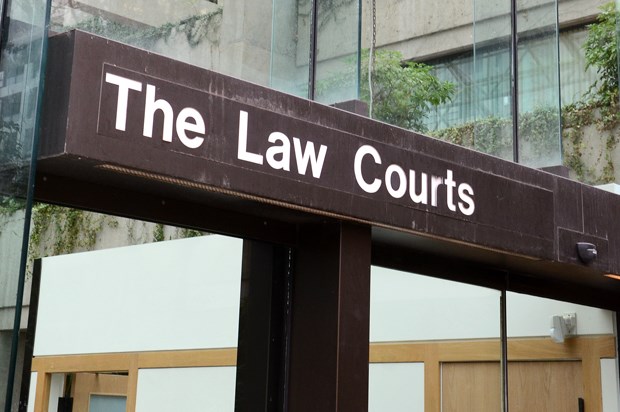A B.C. Supreme Court judge has rejected an attempt by a prominent property developer, Donato De Cotiis, to quash a three-month driving prohibition handed to him after he was stopped at a police roadblock on the Lions Gate Bridge.
According to court documents, De Cotiis failed two roadside breathalyzer tests after a night out on the town March 7 during which he said he consumed 10 drinks.
In a petition filed this summer, De Cotiis detailed his consumption of alcohol that evening, which included three glasses of red wine with dinner, three cans of Coors Light at a Canucks game and four tequila shots at the Roxy nightclub.
De Cotiis argued that the tequila shots would not have yet been absorbed by his system when he was stopped by West Vancouver police on the bridge shortly after 1 a.m. He attributed signs of impairment noted by the police officer to other factors, including being “overwhelmed” and wearing cowboy boots with a two-inch heel.
De Cotiis also submitted a report of a toxicologist in an effort to show his blood alcohol levels for the evening would have been within legal limits.
But Justice George Macintosh agreed that the adjudicator for the superintendent of motor vehicles was entitled to disregard that, as the report depended entirely on De Cotiis’s own recollection of how much he’d had to drink that night.
A lawyer for De Cotiis also argued that he’d been unable to obtain an “accuracy check” for one of the roadside screening devices that registered De Cotiis as over the legal blood alcohol limit. That prevented him from making a full defence, said the lawyer.
But the judge noted there is no requirement to use two devices. “If only one had been used or relied upon, the reading still would have been a fail,” he wrote.
The judge noted the case is not a criminal one, but is about an administrative regulation, meant to protect the public by removing impaired drivers from the roads.
Judges in previous cases have already determined that driving on a public highway is not a protected “right” but a privilege, which the government may restrict, Macintosh noted.



